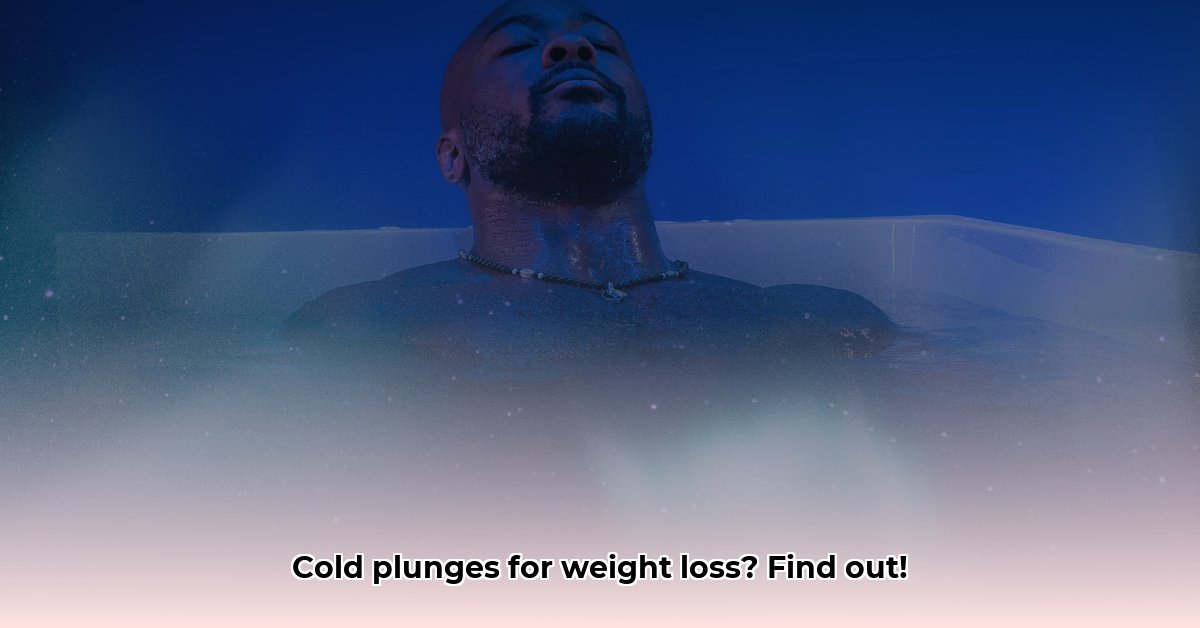
Are Cold Plunges a Weight-Loss Solution? Separating Hype from Reality
The idea of shedding pounds by taking a freezing cold plunge is undeniably alluring. Many tout cold plunges as a weight-loss miracle, but does the science support these claims? This article critically examines the evidence, separating fact from fiction to determine if cold water immersion is a viable weight-loss strategy.
Potential Mechanisms: Brown Adipose Tissue and Beyond
The purported mechanism behind cold plunges and weight loss centers on brown adipose tissue (BAT) – a type of fat that generates heat by burning calories. Exposure to cold might increase BAT activity, leading to increased calorie expenditure and potentially, weight loss. Additionally, some research suggests cold plunges may improve insulin sensitivity, impacting how the body processes sugar and potentially aiding weight management. It's crucial to emphasize that these are potential mechanisms; conclusive evidence is lacking.
Scientific Evidence: A Critical Review
Current research on cold plunges and weight loss reveals a mixed bag. Several small studies suggest a possible correlation between cold water immersion and changes in body composition, with some indicating improved insulin sensitivity. However, limitations abound. Many studies suffer from small sample sizes, lack of robust control groups, and methodological inconsistencies, making it difficult to establish causality. Correlation does not equal causation. More extensive, well-designed studies are needed to confirm any significant impact on weight loss.
Potential Benefits: Cautious Optimism
Based on preliminary research, some potential, albeit unproven, benefits include:
- Potentially Improved Insulin Sensitivity: Studies hint at a possible improvement in insulin sensitivity following cold exposure. Improved insulin sensitivity can positively affect metabolic health and might indirectly support weight management.
- Marginal Increase in Calorie Expenditure: Cold plunges may slightly elevate daily energy expenditure, resulting in a few extra calories burned. This effect is likely minimal and insufficient for significant weight loss without dietary and exercise modifications.
Potential Risks and Considerations: Prioritizing Safety
Cold plunges are not without risk. Individuals should be aware of potential adverse effects:
- Hypothermia: Exposure to cold water can lead to dangerously low body temperature, particularly for those unaccustomed to cold plunges or with pre-existing health conditions.
- Cardiovascular Stress: Individuals with heart conditions should avoid cold plunges unless medically cleared by a cardiologist. Cold water can significantly stress the cardiovascular system.
- Other Risks: Potential side effects include increased blood pressure, breathing difficulties, and skin irritation.
Conclusion: More Research Needed
While the idea of using cold plunges for weight loss is intriguing, the current scientific evidence is inconclusive. Although some studies suggest marginal benefits in insulin sensitivity and calorie expenditure, no definitive link to substantial weight loss has been established. A healthy diet and regular exercise remain the most effective and safe pathways to achieve sustainable weight management. Consult your physician before incorporating cold plunges into your routine, especially if you have any underlying health conditions.
References: (Note: This section would include properly formatted citations to all scientific studies and sources mentioned in the article.)